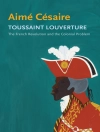Despite global shifts in world power, racial conflict remains one
of the major problems of contemporary social life. This concise and
engaging book demonstrates the interplay between identity, power
and conflict in the creation, persistence and transformation of
patterns of race and ethnic relations across the globe.
Stone and Rizova employ a neo-Weberian comparative approach to
explore how evolving systems of group conflict have been – and
continue to be – impacted by changes in the world system, global
capitalism, multinational corporations, and transnational alliances
and institutions. The authors analyse critical debates about
‘post-racialism’, ‘exceptionalism’, ethnic
warfare and diversity management in global organizations, drawing
on cases from South Africa to Darfur, and from global migration to
the Arab Spring uprisings. In conclusion, the search for effective
strategies of conflict resolution and the quest for racial justice
are evaluated from multiple perspectives.
Racial Conflict in Global Society provides stimulating
insights into the basic factors underlying racial conflict and
consensus in the early decades of the twenty-first century. It is
essential reading for scholars and students across the social and
political sciences, management and international relations.
Mục lục
Introduction
Chapter 1. Diversity: Conflicts in the New Millennium
Chapter 2. Power: The Changing Geo-politics of Race
Chapter 3. Boundaries: Identity in the New World Disorder
Chapter 4. Organizations: Challenges Facing Global Institutions
Chapter 5. Violence: Extreme Racial Conflict
Chapter 6. Justice: The Search for Solutions
Notes
Giới thiệu về tác giả
John Stone is Professor of Sociology at Boston University. He is the founding editor of the journal Ethnic and Racial Studies.
Polly Rizova is Associate Professor of Management at Willamette University.












